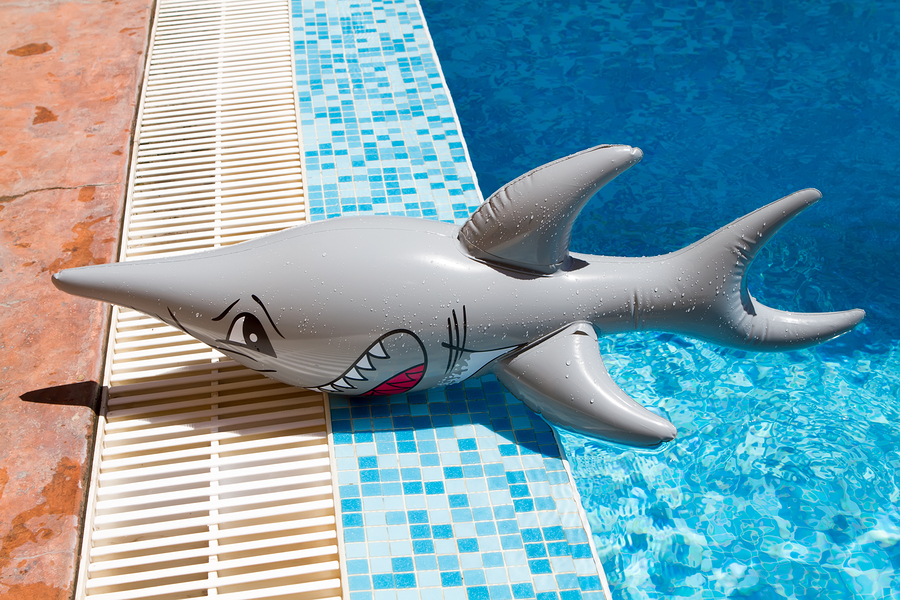Shark Week, an annual summer event that reminds us of our worst swimming fears, is celebrating its 30th season this July. Of course, we rarely have to worry about sharks in backyard swimming pools, but that doesn’t mean you aren’t likely to come across some wildlife in your pool. It was only a couple of months ago that a Florida family found an alligator, approximately 11 feet in size, in their home swimming pool. Chlorine, for all its benefits, really can’t help with that. Of course, that could never happen in Ohio, right? Although a Florida alligator was found in Summit Lake in Akron a few years ago.
Animals are common pool visitors.
Household pets enjoy time in the family pool, but various species of wildlife are just as attracted to cool water on a muggy day. Skunks, chipmunks, mice, squirrels, snakes, frogs, and more are all commonly found in outdoor pools. Curiosity can get the better of some animals, particularly babies, and sometimes they aren’t able to find a way out of the pool on their own. This leaves you playing the role of (wild)lifeguard.
Keeping animals out of the pool area.
It’s recommended that every pool have a fence, to protect both children and wildlife alike. As well, be sure to keep your pool area clean; never leave trash around the pool area that may attract nocturnal scavengers. A pool cover can also help eliminate the problem of animals in your pool, leaving it ready for you and your family.
Helping animals out of the pool.
The Humane Society offers recommendations for keeping animals safe if they wander into your pool. Building shallow ledges into the design can offer a step up, or nylon rope along the edges can give animals grip to get out of deep water. There are also assistive devices that you can purchase, such as the Skamper-Ramp or FrogLog. Both devices give animals in distress a place to perch and escape the pool before they become trapped in the water.
Cleaning the pool after an intruder.
You aren’t always going to know if the local squirrels have taken a midnight dip, so it’s important to have a regular cleaning schedule. Basic disinfection will take care of most animals’ presence. The only animal you really must worry about is a raccoon. Beware of raccoons; these culprits can spread illness in your pool area. If you find a deceased raccoon in your pool, you’ll want to follow these CDC recommendations to avoid serious illness.
Ensuring pool safety may not always be pleasant, but it is always important. Managing wildlife is often nothing more than a minor inconvenience, but regular cleaning will keep your mind at ease. We’re just glad alligators (and sharks) don’t visit Ohio (at least not too often!).
If you have extra visitors to your pool and need help cleaning up, get in touch!

